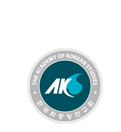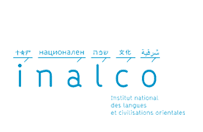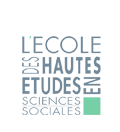Actualités
Actualités

The LTI Korea Translation Academy is looking for talented applicants who will rise to the challenge of translating Korean literature, thereby contributing to the growth of its global readership.
LTI Korea Translation Academy Fellowship
The fellowship is open to speakers of English, French, German, Russian, Spanish, Chinese and Japanese. The fellowship is designed to allow foreign students to devote themselves fully to the study of literary translation during their stay in Korea.
□ The fellowship includes round-trip airfare, monthly stipend of 1.2–1.6 million won, visa sponsorship and tuition waiver *The monthly stipend amount will depend on the student’s performance during the program.
□ About the Program
○ Languages: English, French, German, Russian, Spanish, Chinese, Japanese
○ Eligibility
– Foreigners and overseas Koreans with a bachelor’s degree or above can apply.
– Applicants who are not involved in any economic activities in Korea when the course starts (September 2020–June 2022).
○ Number of Fellowships: Maximum 4 for each language
○ Curriculum: Translation of Literary Texts, Study of Translation Styles, Korean Literature, Korean Culture, Korean Language
– The program also offers activities such as workshops with Korean writers and literary excursions.
○ Faculty: Professors of literature, literary translation, and Korean language and culture
○ Duration: September 2020–June 2022
※ Fall Semester: September–December | Spring Semester: March–June

The LTI Korea hosts 2020 Translator-in-Residence program to offer translators from abroad an opportunity to gain deeper understanding of Korean literature. Participants of the program will have the opportunity to hands-on experience Korean literary culture and nurture their literary translation skills.
Target Participants (Qualifications)
Translators, scholars and other translation/publication professionals residing overseas who meet one of the following conditions:
– Has had at least 1 translated work (literature/culture/arts) published overseas (including literary magazine)
– Has made a significant contribution to the dissemination of Korean literature overseas
– Has been the recipient of a Korean or international prize or translation grant for the translation of a Korean literary, cultural or artistic text
※ Please include specific details: name of the prize or literary magazine, year of receipt, etc.
Program Period: July 2020 – November 2020
Support Offered
– Financial Support: Living expenses(up to ₩3,300,000) and roundtrip airfare
– Activities Provided: meetings with writers, translation/Korean literature lectures, etc.
(Translation/Korean literature lectures will only be provided from July to August. Please apply within this period if you wish to participate in this program.)
※ All programs will be conducted in Korean.
Length of Stay: 21 days within the program period
Applicants are asked to submit the following documents by email (academy@klti.or.kr):
1) Residency program application form (fixed format, can be downloaded from the LTI Korea website)
2) Personal statement & Translation research activity proposal (any format, around 3 pages of A4)
3) Agreement to the collection of personal information (can be downloaded from the LTI Korea website)
APPLICATION DEADLINE: APRIL 19th 24:00 KST
Selection Announcement: Applicants will be notified of their result in May. The list of selected candidates will also be announced on the LTI Korea website. (https://www.ltikorea.or.kr/kr/board/notice/boardList.do)
Final Report: All participants of this program are required to turn in a final report (fixed format) within 1 month of completion.
Contact
Division of Education Program, Heesu Choi(academy@klti.or.kr / +82-2-6919-7756)

Le bouclage du Bulletin d’avril 2020 du Rescor intervient dans la période difficile et inédite de confinement obligatoire et généralisé au niveau national qui oblige à réinventer des méthodes de travail adaptées aux circonstances. Au nom de toute l’équipe du Rescor, nous souhaitons à tous les membres du Réseau, à ses participants et aux utilisateurs des outils mis à la disposition de la collectivité, de prendre toutes les mesures de prudence pour préserver leur santé et celles de leurs proches. En dépit d’un début de l’année civile compliqué par les conséquences de la création du nouvel établissement fusionné qu’est la nouvelle Université de Paris (anciennement Paris Diderot – Paris 7, établissement fondateur et gestionnaire du Rescor), le Réseau a fait montre d’un beau dynamisme avec la mise en ligne d’ouvrages importants : l’Atlas de Séoul de Valérie Gelézeau ainsi que l’Atlas national de la Corée traduit par Pierre-Emmanuel Roux en collaboration avec Philippe Cadène, géographe à l’Université de Paris. Ce à quoi s’ajoutent plusieurs grands chantiers : la réactualisation du Livre blanc des études coréennes pour l’année 2019 et la refonte de la charte graphique du site Web du Rescor en cours de réalisation. De plus, deux nouvelles interviews de personnalités des études coréennes sont actuellement en préparation : celle de Mme Lee Byoung-Joo, ancienne maîtresse de conférences à l’Université Paris 7, et de Pierre Cambon, conservateur en chef du Musée Guimet. Elles seront disponibles au visionnage dès la réouverture de l’Université de Paris. Toutes ces réalisations ont été possibles grâce au travail zélé et efficace de l’équipe du Rescor, mais qui a perdu un de ses membres : Audrey Rameau nous a en effet quitté fin février suite à sa réussite à un concours administratif. Nous lui exprimons nos sincères remerciements pour tout le travail accompli et nous lui souhaitons une bonne suite dans sa future carrière ! Le Rescor fonctionne donc avec une équipe resserrée qui n’a pas pu accueillir de stagiaire cette année, mais vient de recevoir le renfort de deux jeunes coréanologues prometteuses : Marion Delarche et Gulsen Kilci. Ainsi, le Rescor continue, en cette période inconfortable, à alimenter son blog et son site d’annonces, de comptes rendus de conférences et d’articles de la Revue de Corée. En ce début avril, j’adresse à tous un message d’encouragement à supporter l’enfermement et à se prémunir contre la contagion. Que tous ceux, grâce à qui les outils du Rescor continuent de fonctionner, soient également remerciés car ils contribuent à maintenir les liens qui nous rapprochent et nous font sentir être communauté ouverte sur le monde.
Professeur des universités à l’Université de Paris
Pages






